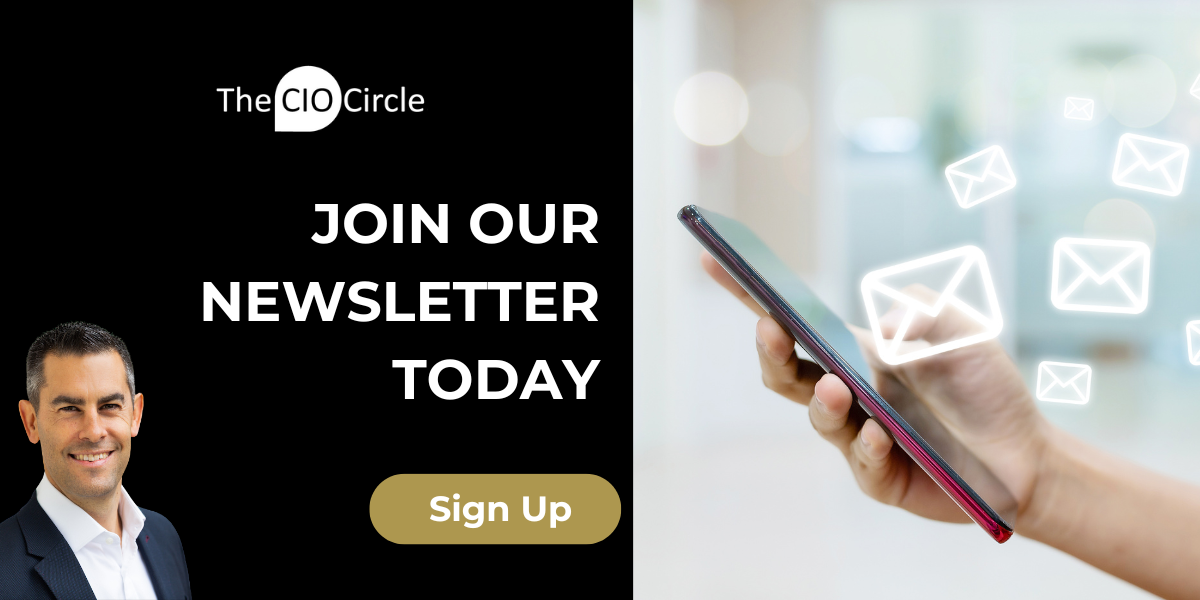DAN MEDINA
CIO at Gulf Coast Collection Bureau
Can you please provide a little introduction about yourself
I am a data guy at heart. I enjoy the exploration, building, and organizational aspects of it. It’s no wonder I became the Chief Information Officer for the Gulf Coast Collection Bureau. We are a healthcare collection agency in Sarasota, Florida, employed by hospital and physician groups nationwide. We are approximately 100 employees strong across three vertically integrated service companies. Gulf Coast Collection engages in third-party collections. Probate Recovery Solutions handles deceased records data for estate filings, and Southeastern Healthcare Solutions handles pre-collection, early-out, and business services.
What has your journey to your position been like? What path have you taken?
I took one of the many long roads less traveled. In 10th grade, I taught myself how to code. I wrote a French tutorial program in QuickBasic for the international Fair. My program had several lessons and a quiz for each. I won the computer program competition. Then again, there were only 2 entries because it was 1992 after all. In 1996, my love of money compelled me to work at a bank. I was a bank teller for about 6 months. The best part of that experience was seeing $250k in cash. I leveraged that brief experience and obtained a bookkeeper position.
I now had my first professional office job as the bookkeeper of a retained executive search firm. I learned the owner’s cash management system he operated in Quicken and after 6 months, I converted us to QuickBooks. While there, I realized I had a knack for doing reconciliations and presenting my findings through reports.
In 1999, I stepped away from accounting for a little while and gave IT a chance. I worked as a computer and network technician at a Credit Union. I learned to build servers there and was introduced to all network management things Microsoft. Later, I worked for a small consulting company that sold and supported scrap recycling point-of-sales systems, talking about a niche.
In 2002, I leaned on my bookkeeper experience and obtained a staff accountant position at an International Debt Buyer. As the accounts payable person, I did quick work of my regular duties and found ways to optimize my workload, a.k .a. avoiding working. On paper, we were 8 different and somewhat co-owned companies. This was due to international ownership rules and related reporting requirements. Our accounting software required separate logins for each company, but part of my job was to find incomplete intercompany journal entries. I exported journal entries for all 8 companies into an MS Access solution I developed. My supervisor noticed my programming abilities and eventually tasked me with building a better reporting solution than what they had in place, mostly linked spreadsheets.
It was 2004, and I had tinkered with open-source software the prior 6 years. I was dying to use it professionally. MySQL was making a lot of news, and it had only been out for 8 years. Within 3 months, I assembled and released a browser-based data warehouse and self-service reporting solution. It ran Mondrian data cubes on a MySQL database. The entire stack was made up of open-source software such as JPivot, Mondrian, MySQL, and Art Lightweight Query. Some of the tools I used for this project were eventually consolidated and brought to market as the Pentaho platform which was later acquired by Hitachi.
During my time at the debt buyer, I worked my way from Staff Accountant up to Director of Analytics. I developed a predictive model using only SQL. There, I also completed my bachelor’s degree in business management. In 2006, the company was sold to a large conglomerate. The same people that created the company left in 2008 and formed a new company. I was invited to join them and built several more reporting stacks like the first one.
At the second debt buyer, I became a database administrator and developer working on both MySQL and the complete Microsoft SQL Server platform. I taught myself the internals of an industry-leading collection system we chose to manage our accounts. I also went back to school and obtained a master’s degree in applied statistics. In 2010, I left to work as Director of IT for a collections law firm. Later, I worked for a collection agency in the same capacity. I did a brief stint in 2016 as a consultant and contract database developer, and I met my current employer.
Has it always been your vision to reach the position you’re at? Was your current role part of your vision to become a tech leader?
Yes, but initially, I didn’t want to work in information technology for a living. In my early years of programming, I only did it for fun. I feared working in IT would ruin that. That’s why I initially pursued accounting. In hindsight, working in and learning accounting before working in IT ended up being the best decision I made. It empowered me to write better processes and programs that add the most business value. It wasn’t until I worked at a credit union that I realized I enjoyed working in IT, too, and that I could combine the two to make a career for myself.
Have you had a role model or mentor that has helped you on your journey?
Mike LaFleur hired me in 2002 as a staff accountant and took me under his wing. He taught me a lot about the debt purchasing and collection business in general. He is involved with all facets of finance and accounting. He helped advance my early career and I consider him a good friend.
How do you see the role of the technology leader evolving over the next 5 years?
Hybrid cloud environments, dashboards, robotic process automation, and even voice bots are some of the top trending topics these days that will change drastically over the next 5 years. The current trend of using large language models as a form of artificial intelligence will mature. Our traditional internal knowledge bases will be integrated with our monitoring systems. Our systems will not only report an issue, but they will also propose a solution. We will be able to use real natural language to ask questions and get deployable solutions. A technology leader's role is to discern the validity and feasibility of solutions proposed by anyone or anything at a company. They stay on top of current trends and threats, the market's response, software and systems hardening, and an overall greater focus on security. The technology leader's job is to direct available resources and, when needed, convince executive management that more resources are needed to get the company to the next level in how their systems add value to the organization.
What skills do you think leaders of the future will need in order to thrive?
The future is about information, and everyone needs to know how to ask questions correctly. Whether that's in code like SQL, a chat prompt, your voice, or using NLP AI like the LLMs making headlines these days, everyone needs to know how to ask the questions. If you don't know what NLP and LLM are, please Google them now. This is the first skill you need.
How do you keep current with new skills, technologies and personal development?
I subscribe to many technology news alerts and subreddits. I also have several news apps that ping alerts or highlight recent articles of interest. I enjoy keeping my thumb on the pulse of technology and anticipating market changes. Information is power, and at its core, it’s data.
What do you see as the next leap in technology that will impact your business or industry in particular?
In the realm of call center technology, interactive voice bots are it. They have the potential to easily double the capacity of a call center operation. The technology is evolving at an impressive rate and will eventually be the IVR standard.
In the area of software development, it's definitely all the low code Platforms as a Service, such as Microsoft PowerApps. COVID pushed companies to implement remote work solutions, which helped drive Cloud-based technology adoption. Once companies realized they could extend the functionality of their cloud-based systems, they started playing with low-code solutions. We're still in its infancy, but every day, more companies are developing their own internal tools. It'll be the new norm soon.
"To have a transformative impact in an industry or company, stop trying to achieve work life balance."
If you were mentoring a leader of the future, what advice or guidance would you give to help them on their way?
To have a transformative impact in an industry or company, stop trying to achieve work-life balance. Leaders are not working from home, hiding from their peers. They are out in front observing, learning, developing, testing, teaching, and interacting with everyone they can. They see the potential to improve in just about anything and at every level. They learn to tackle low-hanging fruit first. They do internal feasibility and cost-benefit analysis at the personal and company level that they later run by a peer or superior before they engage in a project.
The first eight years of your professional life are the foundation of your career. Act like it and get the most out of it before life starts handing you lemons. You may not have sugar to make that lemonade. My response to “my journey” proves this. Go back and check the timespan.
Leaders work hard and play hard. Don’t work yourself to the brink of falling apart. Take a weeklong vacation every year. Learn to take weekend mini vacations. My six-year-old daughter calls these adventures. If you have been working hard, you deserve and need to take breaks.
Is there anything in particular that you would still like to achieve in your career or what is the next step on your journey?
I have tentative plans for future projects and engagements. I am always looking for opportunities and have always been flexible. Successful people happen to be at the right place at the right time, but it's only those that are paying attention that realize when it is happening. They are able to take advantage of it. I highly recommend reading Malcolm Gladwell's book, Outliers. It’s a great book that discusses how many great leaders came to be. You'll be surprised by how many times success is circumstantial.
If you could change one thing in the world, what would it be?
The usual: “end world hunger” and “whirled peas” so that we can all get back to conquering interstellar travel and colonization. The planet is not going to be around forever.
A big thank you to Dan Medina from Gulf Coast Collection Bureau for sharing his journey to date.
If you would like to gain more perspective from Tech Leaders and CIOs you can read some of our other interviews here.
March 13, 2024


